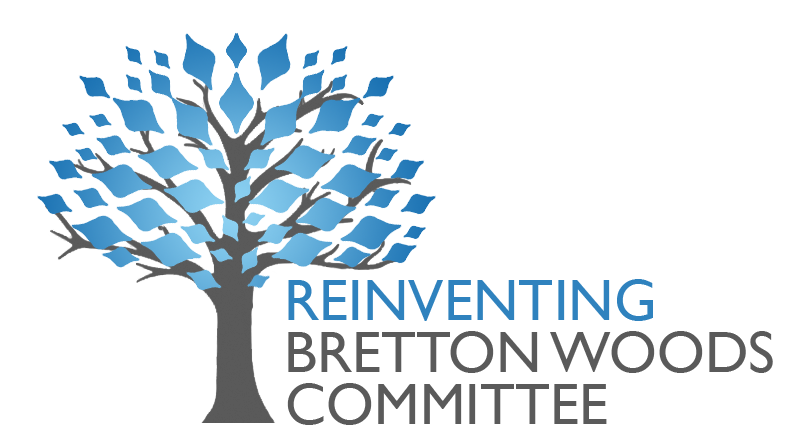The International Monetary System: Old and New Debates
Paris, France
December 10-11, 2010
Partners







Overview
This conference had participants provide an up to date assessment of and considerations for reform of the international monetary system. Proceedings were divided into eight panels followed by summing up activity aimed to regroup panelists’ remarks by a broad but not necessarily comprehensive set of topics. The conference’s proceedings marked wide discrepancies in viewpoints on both the case for reform and possible approaches to reform. Participants expressed on the one hand that the current system had success in promoting sustained international economic integration but on the other hand significant external imbalances and exchange rate volatility reveal its inherent weaknesses. Participants indicated that the problem of asymmetric adjustment remains the main weakness of the system. Participants seemed to suggest that the case for reform could be at least in part conditional upon identifying actual feasible reform options. Participants outlined as possible reform approaches: targeting of international reserves, strengthening of obligations under Article IV, international reserve diversification, bank capital regulation, SDRs. Participants stressed that most reform attempts had been identified and tried in the past but failed however that reform priorities varied through time.
Agenda
Speakers
- Alexander SWOBODA: Professor of International Economics Emeritus, The Graduate Institute of International and Development Studies
- Anton KORINEK: Assistant Professor of Economics, University of Maryland
- Brajamohan MISRA: Adviser, Department of Economic and Policy Research, Reserve Bank of India
- Catherine SCHENK: Professor of International Economic History, University of Glasgow
- Charles HASWELL: Group Head of Regulatory Policy and Development, HSBC
- Cheng SIWEI: Chairman, International Finance Forum
- Christian NOYER: Governor, Bank of France
- Christine LAGARDE: Minister of Economy, Finance and Industry, France
- Claudio BORIO: Deputy Head, Monetary and Economic Department, BIS
- Dmitry PANKIN: Deputy Minister, Ministry of Finance, Russia
- Durmus ZILMAZ: Governor, Central Bank of Turkey
- Edwin M. TRUMAN: Senior Fellow Peterson Institute for International Economics
- Frederic JANBON: Global Head of Fixed Income, BNP Paribas
- Hans GENBERG: Assistant Director, Independent Evaluation Office, IMF
- Jacob FRENKEL: Chairman, JP Morgan Chase International
- Je Yoon SHIN: Deputy Minister of International Affairs, Ministry of Strategy and Finance, ROK
- Jean LEMIERRE: Advisor to the Chairman, BNP Paribas
- Jean Pierre LANDAU: Deputy Governor, Bank of France
- Jens NYSTEDT: Global Strategist, Moore Capital Management
- Jianye WANG: Chief Economist, Export Import Bank of China
- Jin LIQUN: Chairman of the Board of Supervisors, China Investment Corporation
- John GREENWOOD: Chief Economist, Invesco Managers
- John MURRAY: Deputy Governor, Bank of Canada
- Jose Antonio O CAMPO: Professor of Professional Practice in International and Public Affairs, Columbia University
- Kathryn DOMINGUEZ: Professor of Public Policy and Economics, University of Michigan
- Lord Robert SKIDELSKY: Member of Parliament, UK
- Lorenzo BINI SMAGHI: Member of the Board, ECB
- Luiz Pereira DA SILVA: Deputy Governor for International Affairs, Central Bank of Brazil
- Marc UZAN: Executive Director, Reinventing Bretton Woods Committee
- Marcus MILLER: Professor of Economics, University of Warwick
- Mark SOBEL: Deputy Assistant Secretary, US Department of the Treasury
- Menzie CHINN: Professor of Economics, University of Wisconsin
- Michael BORDO: Professor of Economics, Rutgers University
- Michael CAMDESSUS: Honorary Governor, Bank of France
- Nouriel ROUBINI: Professor of economics, New York University, Chairman RGE
- Ousmene MANDENG: Head of Public Sector Investment Advisory, Ashmore Investment
- Pier Carlo PADOAN: Chief Economist, OECD
- Ramon FERNANDEZ: Director General, Directorate of the Treasury, Ministry of Economy, Finance and Industry, France
- Reza MOGHADAM: Director, Policy Review Department, IMF
- Richard COOPER: Professor of Economics, Harvard University
- Rintaro TAMAKI: Vice Minister, International Finance Bureau, Ministry of Finance, Japan
- Robert MUNDELL: Nobel Prize, Professor of Economics, Columbia University
- Rolf WENZEL: Director General for Financial Market Policy, Federal Ministry of Finance, Germany
- Ronald MCKINNON: Professor of Economics, Stanford University
- Tim ADAMS: Managing Director, The Lindsey Group
- Tommaso PADOA SCHIOPPA: President, Notre Europe
- Warren COATS: Director, Cayman Islands Monetary Authority; IMF Retired

